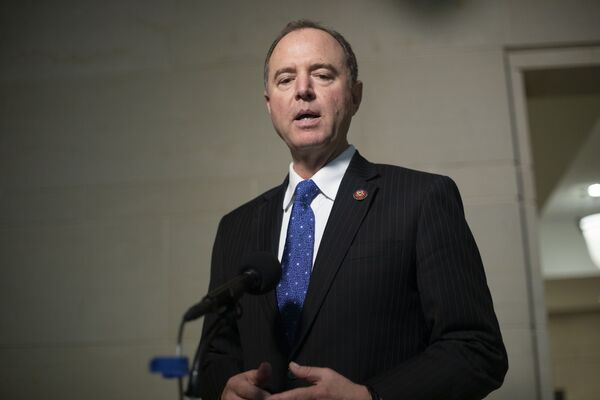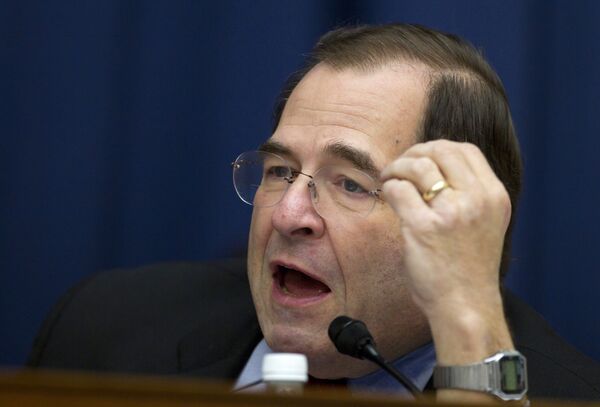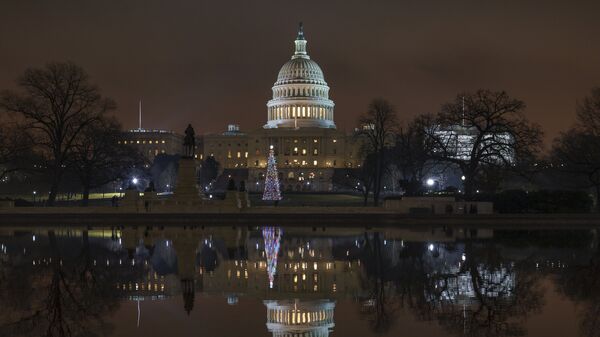The US House of Representatives has adopted a set of rules which outline how the impeachment procedures targeting President Donald Trump will be carried out going forward, with 232 lawmakers voting in favour and 196 against the motion, including two defecting Democrats.
The adoption of the resolution on impeachment procedures was the Democrats' response to accusations of there being a lack of transparency in the probe they are leading. Namely, the White House and Republicans were pointing out that all depositions by the three House committees leading the impeachment efforts were being conducted behind closed doors, while incriminating excerpts from them were later leaked or published to attack the president ahead of the 2020 presidential election.

From now on, the House Intelligence Committee will be organising open impeachment-related hearings, while testimonies given by witnesses behind closed doors must be later released in the form of transcripts. It is possible that some of the witnesses who have already testified behind closed doors might testify again under new procedures.
Preparation of Impeachment Articles
The House Intelligence Committee will eventually assemble a report about its findings, handing over the impeachment process to the next committee, the Judiciary Committee. It will be tasked with assembling the articles of impeachment themselves.
Unlike the Intelligence Committee's hearings, the White House will finally be given an opportunity to participate in the probe by sending counsels, presenting evidence, as well as calling and taking part in witness depositions. Previously, Trump's administration criticised the Democrats' probe for lacking due process, as the White House was not represented and couldn't defend itself and the president.

However, the White House's options in these House Judiciary Committee's hearings can also be limited by its chair, Jerrold Nadler, if the administration continues to refuse to cooperate with the impeachment probe, according to the freshly approved impeachment procedure guidelines. In that happens, Nadler will be able to decline the White House's requests.
House Vote and Impeachment's Prospects in the Senate
After the House Judiciary Committee completes the crafting of articles of impeachment against Trump, the House of Representatives will be tasked with voting for it, which determines its fate. Rogers Smith, professor of political science and President of the American Political Science Association, believes that just like the vote on 31 October, the vote on impeachment will mostly go along party lines, thus "deepening divisions" in the US.
In case of the articles being approved, the impeachment proceedings will move on to the final phase, where the US Senate will be tasked with holding a trial on Trump's case presided over by the Chief Justice of the United States, John Roberts. But, unlike the House, the Senate is controlled by Republicans supporting Trump and their leader, Mitch McConnell, will seek to make the trial "a short one", according to Rogers Smith.
That doesn't mean that Democrats don't stand a chance to indict Trump. The professor pointed out that the scales might be tipped the other way, depending on what facts will be unearthed during the House Intelligence and Judiciary Committees' work.
"Many officials in the State department, US intelligence agencies, and the National Security Council are testifying that the President did conduct American foreign policy with the aim of harming his domestic political opponents, not to advance the national interest […] Most Americans disapprove of such conduct. If the evidence continues to mount, Republicans might cease to support President Trump and he might resign", Smith said.
However, the professor believes that instead of resigning, Trump will stay and will be acquitted by the Senate, but his reputation will suffer a blow. The latter, in turn, might affect POTUS' performance in the 2020 election.





